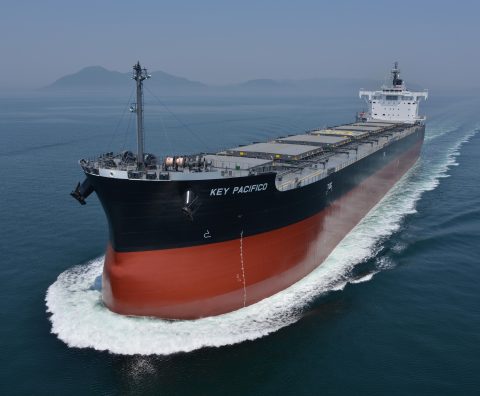
Cargill sends a signal with world’s first methanol-powered kamsarmaxes
Image: Tsuneishi
Cargill partnered up with Mitsui and Tsuneishi, a Japanese shipbuilding company, for an order of two methanol-powered kamsarmaxes. These will be the world’s first kamsarmax bulk carriers powered with methanol, with delivery scheduled for the end of 2025 or the first quarter of 2026.
Want to read more?
You have read all of your free premium articles for this month. Please become a subscriber to keep reading.
Subscribe now!
Take advantage of our exclusive offer to get full access to all premium content.




